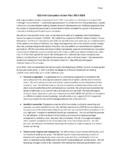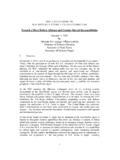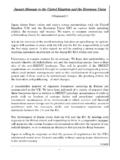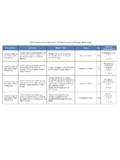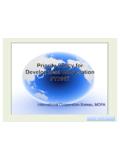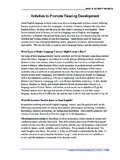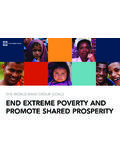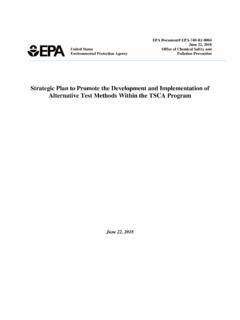Transcription of 00(修正クリア)G7 Ise-Shima Leaders%27 Declaration
1 1 G7 Ise-Shima Leaders Declaration G7 Ise-Shima Summit, 26-27 May 2016 Preamble We, the leaders of the G7, met in Ise-Shima on 26 and 27 May 2016 to address major global economic and political challenges. Global growth remains moderate and below potential, while risks of weak growth persist. Escalated geo-political conflicts, terrorism and refugee flows complicate the global economic environment. The rise of violent extremism, terrorist attacks and other challenges, pose serious threat to the existing rule based international order, as well as to common values and principles for all humanity. The G7 has a special responsibility to lead international efforts to tackle these challenges. We remain bound together as a group guided by our common values and principles, including freedom, democracy, the rule of law and respect for human rights. Furthermore, following the adoption of the 2030 Agenda for Sustainable Development (2030 Agenda) and the Paris Agreement on climate change last year, we will further make efforts to implement our commitments.
2 Today, we have demonstrated our capacity to make tangible progress on a broad range of economic, security, and development policy issues, and we will demonstrate through our actions, a path forward in solving major issues to ensure peace, security and prosperity of the world. G7 Ise-Shima Economic Initiative We pledge to collectively tackle current economic challenges, while laying out foundations for stronger long-term global growth. Therefore, we have developed our commitment in the following areas as our response to contribute to achieve strong, sustainable and balanced growth. World Economy: Global growth is our urgent priority. Taking into account country-specific circumstances, we commit to strengthening our economic policy responses in a cooperative manner and to employing a more forceful and balanced policy mix, in order to swiftly achieve a strong, sustainable and balanced growth pattern. We reiterate our commitments to using all policy tools monetary, fiscal and structural individually and collectively, to strengthen global demand and address supply constraints, while continuing our efforts to put debt on a sustainable path.
3 We reaffirm the important role of mutually-reinforcing fiscal, monetary and structural policies, the three pronged approach, to buttress our efforts to achieve strong, sustainable, and balanced growth. We concur on the importance of strengthening our efforts in a cooperative manner to implement our fiscal strategies flexibly to strengthen growth, job creation and confidence, while enhancing resilience 2 and ensuring debt as a share of GDP on a sustainable path, as well as to advance structural reform decisively. We are committed to advancing structural reforms to boost growth, productivity and potential output and to leading by example in addressing structural challenges. We commit to further investment in areas conducive to economic growth, such as environment, energy, digital economy, human resource development, education, science and technology. Migration and Refugees: The G7 recognizes the ongoing large scale movements of migrants and refugees as a global challenge which requires a global response.
4 We commit to increase global assistance to meet immediate and long-term needs of refugees and other displaced persons as well as their host communities. The G7 encourages international financial institutions and bilateral donors to bolster their financial and technical assistance. Trade: We are committed to using trade to create economic opportunities for workers, consumers and firms. We reaffirm our commitment to keep our markets open and to fight all forms of protectionism. In order to further boost free trade, we commit to strengthen the rules-based multilateral trading system and promote WTO negotiations. We also encourage trade liberalization efforts through regional trade agreements including the Trans-Pacific Partnership (TPP), the Japan-EU Economic Partnership Agreement (EPA), the Transatlantic Trade and Investment Partnership (TTIP) and the Comprehensive Economic and Trade Agreement (CETA).
5 We recognize that global excess capacity in industrial sectors, especially steel, is a pressing structural challenge with global implications and this issue needs to be urgently addressed through elimination of market distorting measures and, thereby, enhancement of market function. Infrastructure: We endorse the G7 Ise-Shima Principles for Promoting Quality Infrastructure Investment to address the global demand-supply gap and strive to align our own infrastructure investment with the Principles. We further encourage the relevant stakeholders, including multilateral development banks (MDBs), to align their infrastructure investment and assistance with the Principles. Health: We commit to take concrete actions for advancing global health as elaborated in the G7 Ise-Shima Vision for Global Health, highlighting that health is the foundation of economic prosperity and security. We commit to promote Universal Health Coverage (UHC) as well as endeavor to take leadership in reinforcing response to public health emergencies and antimicrobial resistance (AMR) which could have serious impacts on our economies.
6 We also emphasize promoting research and development (R&D) and innovation in these and other health areas. Women: We commit to create a society where all women and girls are empowered and actively engaged for sustainable, inclusive and equitable economic growth. We commit to empowering women and girls, including through capacity-building such as education and training as well as 3 promoting active role of women in Science, Technology, Engineering and Mathematics (STEM) fields. We endorse to the G7 Guiding Principles for Building the Capacity of Women and Girls as common guiding principles for our actions. Cyber: We strongly support an accessible, open, interoperable, reliable and secure cyberspace as one essential foundation for economic growth and prosperity. We promote digital adoption for improved quality of life, by bridging digital divides, enabling innovative business models and affordable universal and high quality access to Information and Communication Technologies (ICTs) as well as enhancing digital literacy.
7 We endorse the G7 Principles and Actions on Cyber and commit to take decisive actions. Anti-Corruption: Our collective and individual action to fight corruption is critical for economic growth, sustainable development and maintaining peace and security. We resolve to take measures to improve public procurement transparency, enhance fiscal transparency, and improve anti-corruption capacity building as well as strengthen law enforcement cooperation. We will also promote global effort to fight corruption. We endorse the G7 Action to Fight Corruption as our commitment to lead by example in moving the global anti-corruption agenda forward. Climate: The G7, continuing to take a leadership role, commits to taking the necessary steps to secure ratification, acceptance or approval of the Paris Agreement as soon as possible, and calls on all Parties to do so striving for a goal of entry into force in 2016. We commit to take the lead by early, transparent and robust implementation of our nationally determined contributions, and promoting increased ambition over time.
8 We also commit to actively participate in the regular review of global stock-take progress every five years. We commit to formulate and communicate ambitions mid-century long-term low greenhouse gas (GHG) emission development strategies well ahead of the 2020 deadline. Energy: Recognizing the important role that the energy system has to play in the implementation of the Paris Agreement, we are determined to accelerate our work towards the transition to an energy system that enables a decarbonization of the global economy, and commit to further invest in supporting innovation in energy technologies and encouraging clean energy and energy efficiency, so as to ensure economic growth with reduced GHG emissions. Faced with the increased uncertainty posed by the current energy price levels, we also commit to play a leading role in facilitating energy investments, in particular investments in quality energy infrastructure and upstream development.
9 4 Global Economy State of the Global Economy The global recovery continues, but growth remains moderate and uneven, and since we last met downside risks to the global outlook have increased. Global trade performance has disappointed in recent years. Weak demand and unaddressed structural problems are the key factors weighing on actual and potential growth. There are potential shocks of a non-economic origin. A UK exit from the EU would reverse the trend towards greater global trade and investment, and the jobs they create, and is a further serious risk to growth. Escalated geopolitical conflicts, terrorism and refugee flows, are complicating factors in the global economic environment. We have strengthened the resilience of our economies in order to avoid falling into another crisis, and to this end, commit to reinforce our efforts to address the current economic situation by taking all appropriate policy responses in a timely manner. Policy Response In light of this background, taking into account country-specific circumstances, we commit to strengthening our economic policy responses in a cooperative manner and to employing a more forceful and balanced policy mix, in order to swiftly achieve a strong, sustainable and balanced growth pattern.
10 We stand ready to deploy robust policy responses to bolster short and longer-term growth as necessary. We reiterate our commitments to using all policy tools monetary, fiscal and structural individually and collectively, to strengthen global demand and address supply constraints, while continuing our efforts to put debt on a sustainable path. We reaffirm the important role of mutually-reinforcing fiscal, monetary and structural policies, the three pronged approach, to buttress our efforts to achieve strong, sustainable, and balanced growth. We remain committed to ensuring that growth is inclusive and job-rich, benefitting all segments of our societies. Monetary policy authorities have committed to supporting the economic recovery and overcoming disinflation, consistent with their mandates, including through unconventional policies. However, monetary policy alone cannot lead to strong, sustainable and balanced growth. We concur on the importance of strengthening our efforts in a cooperative manner to implement our fiscal strategies flexibly to strengthen growth, job creation and confidence, while enhancing resilience and ensuring debt as a share of GDP on a sustainable path, as well as to advance structural reforms decisively.

